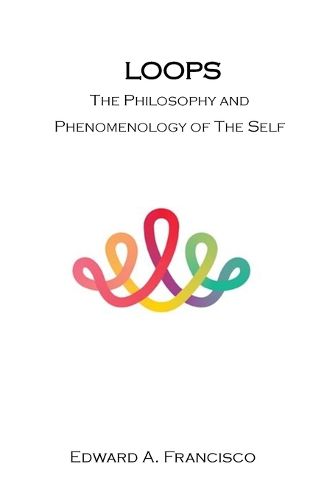Readings Newsletter
Become a Readings Member to make your shopping experience even easier.
Sign in or sign up for free!
You’re not far away from qualifying for FREE standard shipping within Australia
You’ve qualified for FREE standard shipping within Australia
The cart is loading…






This title is printed to order. This book may have been self-published. If so, we cannot guarantee the quality of the content. In the main most books will have gone through the editing process however some may not. We therefore suggest that you be aware of this before ordering this book. If in doubt check either the author or publisher’s details as we are unable to accept any returns unless they are faulty. Please contact us if you have any questions.
Loops is a speculative work of philosophy and phenomenology on the subject of the self. It consists of brief compositions on key topics in the debate about the nature of the self; as it is constituted and as we experience it. Its central claim is that the self is real and constituted as an emergent experiential, information processing and behavioral system that arises reflexively in the conscious subject and a body setting that is organized and primed with many of the required processes in place. These processes represent our world as coherent and temporally unified within the construct of a developing and roughly continuous experiencer-agent, or self. And selves are where standpoints, desires, preferences, intentions, concerns, attitudes, reasons and social equities appear. Drawing on a large body work by philosophers and scientists, a verse essay style is used to present a theory of the self that seeks to overcome the deflationary efforts of some theorists to treat the self as a mere fiction or as only a phenomenal model, a narrative or a social construct. Rather, it is argued, the self is a dynamic and self-referring, self-considering and self-propagating information and causal system that resolves itself around major functional 'attractors' that concentrate its operations, expectations and dispositions. Those attractors, it is proposed, underwrite the dominant cognitive, agential and response features of personality. As such, though evolving through feedback and feedforward responses, a self appears only when such stabilizers are established and reinforced. Selves are not simple. Importantly, the philosophical properties of the self (the sort of thing it is) as well as its experiential and behavioral properties (how it presents, operates and is managed) must be included in a theory of the self.
$9.00 standard shipping within Australia
FREE standard shipping within Australia for orders over $100.00
Express & International shipping calculated at checkout
This title is printed to order. This book may have been self-published. If so, we cannot guarantee the quality of the content. In the main most books will have gone through the editing process however some may not. We therefore suggest that you be aware of this before ordering this book. If in doubt check either the author or publisher’s details as we are unable to accept any returns unless they are faulty. Please contact us if you have any questions.
Loops is a speculative work of philosophy and phenomenology on the subject of the self. It consists of brief compositions on key topics in the debate about the nature of the self; as it is constituted and as we experience it. Its central claim is that the self is real and constituted as an emergent experiential, information processing and behavioral system that arises reflexively in the conscious subject and a body setting that is organized and primed with many of the required processes in place. These processes represent our world as coherent and temporally unified within the construct of a developing and roughly continuous experiencer-agent, or self. And selves are where standpoints, desires, preferences, intentions, concerns, attitudes, reasons and social equities appear. Drawing on a large body work by philosophers and scientists, a verse essay style is used to present a theory of the self that seeks to overcome the deflationary efforts of some theorists to treat the self as a mere fiction or as only a phenomenal model, a narrative or a social construct. Rather, it is argued, the self is a dynamic and self-referring, self-considering and self-propagating information and causal system that resolves itself around major functional 'attractors' that concentrate its operations, expectations and dispositions. Those attractors, it is proposed, underwrite the dominant cognitive, agential and response features of personality. As such, though evolving through feedback and feedforward responses, a self appears only when such stabilizers are established and reinforced. Selves are not simple. Importantly, the philosophical properties of the self (the sort of thing it is) as well as its experiential and behavioral properties (how it presents, operates and is managed) must be included in a theory of the self.